I have heard every reaction to my herbalist profession these last 22 years. At times I’m seen as a miracle worker who has the answer to a mysterious ailment that no other practitioner has been able to heal. Then at other times I’m thought to harness a secret power that could easily poison one to death. This perception of the practice of herbal medicine is due to the lack of trusted voices and (at times) the general blindness in the education of wellness at large in the western world to this day. Although I am comfortable with being a part of the ‘alternative’ medicine profession, the concern is that those that could benefit from using plant medicine and natural remedies are not always because of simply antiquated points of view.
Many clients and friends have personally shared with me that they do not see themselves as “those types of people”. They ascertain that taking herbal medicine is exclusive to hippies, woo-woo witches, or conspiracy theorists. This is despite thousands of research articles that exist proving herbal medicines efficacy. This conversation often arises when folks are seeking out care for life threatening diagnoses like cancer or chronic illness through their primary care doctor or HMO, whilst denying the offer to seek out a herbalist, acupuncturist, or nutritionist as adjunct therapies to their western allopathic care. Sadly, no matter the evidence backing up these complementary therapies.
Alternatively, many of the clients I meet that believe in natural medicine’s healing powers cannot financially access these alternative therapies, most of which are not covered by insurance. Sadly, the people that want alternative care often do not have the means to pay for additional services since these therapies are not covered by their insurance.
After the hippie revolution of reinvigorating natural health in the 60’s, the bohemian super elite moved into the space of pampering; focusing on spas and retreats to achieve optimal health. Unfortunately, “Wellness” as an industry was oriented toward high revenues and heavily branded as a white only space, excluding communities that could benefit from it the most.
Wellness is defined by a balance of physical, mental, emotional, spiritual, communal, and ecological health. (NIH Study) Looking at disparities of access, we know that community health is directly linked with an individual’s wellbeing. A June 2020 study shows that black and brown people were disproportionately affected by lack of access to wellness during the pandemic. Racism and ableism play a large part in how many people feel marginalized when hiking outdoors, which reduces safe access to natural resources. LGBTQ+ youth report not feeling safe in sports, therefore reducing their physical activity and mental health. The systemic exclusionary access to wellness products and practices has major implications in the health of disenfranchised communities.
Our society has a massive opportunity to rethink what nourishes a culture of personal health, builds a community ecology of wellness and places disenfranchised people in the spaces they’ve been historically left out of. Can you imagine instead: a space where people of any nation can learn their own ancestral remedies and stories, while learning about the modern research of those same plants? Or, simply receive encouragement and guidance to engage with outdoor spaces as a healing modality? A space where they can engage with the healing arts in a modern day setting?
At Land of Verse, we are reimagining what a “healing” can look like. Everyone needs access to these healing modalities, and we are inspired to bring traditional knowledge into the modern day world. Our programs reestablish the role of the community healer while reducing appropriation, increasing awareness of sustainable farming and wildcrafting, and centering the Earth as a stakeholder. We can accomplish this without sacrificing our brand, bringing in fresh ideas, diverse teachers, and deep knowledge in ancestral ways. And we can do this with evidence-based wisdom.
Everyone has a right to health empowerment, and we hope you will join us!

